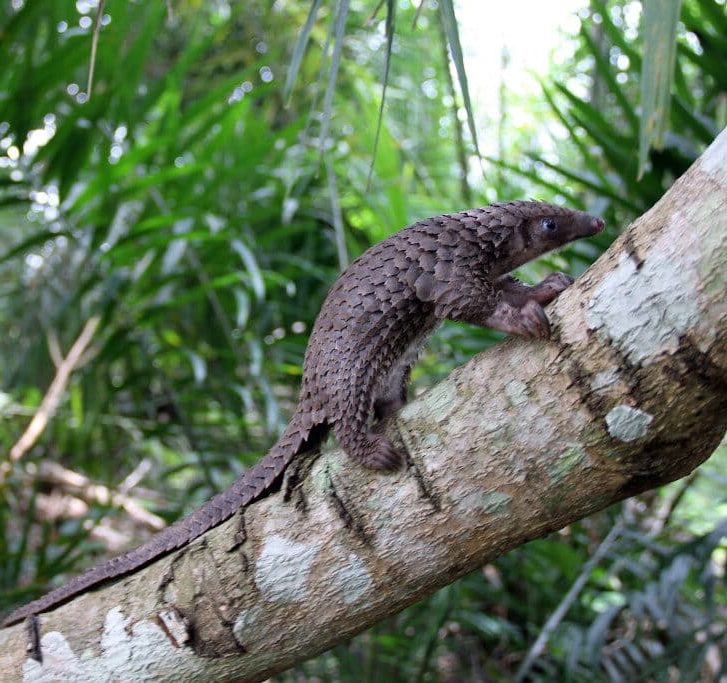This World Pangolin Day, join us in celebrating pangolins and the amazing efforts of conservationists to protect them. The Pangolin Crisis Fund (PCF) has one mission: saving all eight species of pangolins from extinction, and your generous support enables us to make lasting impacts toward that goal. Since launching in 2019, the PCF has supported 95 projects protecting pangolins in 28 countries across Africa and Asia, and none of this tremendous investment would have been possible without people like you.
Continue learning about these scaly creatures and make a gift this World Pangolin Day to help them.
Every pangolin in care is a survivor of trauma—rescued from the illegal wildlife trade, orphaned by poaching, or displaced by habitat destruction. Pangolin caretakers play a special role ensuring that these animals are able to survive during rehabilitation and be released back into the wild. Meet the pangolin caretakers who are working on the frontlines to protect these endangered animals from extinction.
One of the first female caretakers at WCP, Hellen is driven by her compassion for pangolins’ vulnerability to people. She maintains a demanding schedule, beginning before dawn to lead foraging expeditions and meticulously monitoring the pangolins’ health and weight. Having helped rehabilitate 58 pangolins, Hellen finds her greatest joy in seeing them released back into the wild. Knowing pangolins are vital to their ecosystems, Hellen sees every ounce of support as an investment in our planet’s future.
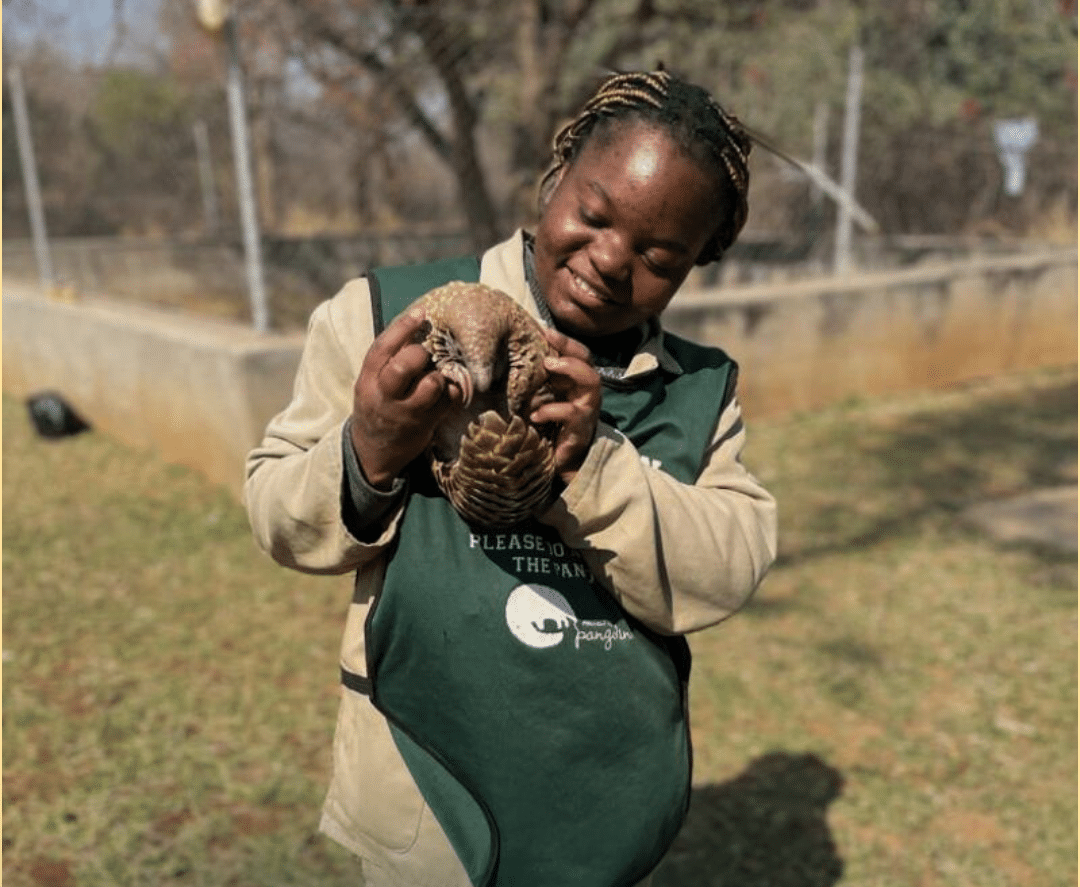
Phaliot has helped rehabilitate over 370 pangolins in the past decade. Calm and gentle, his disposition helps put these shy mammals at ease—an incredible feat that helps researchers uncover new pangolin behaviors. Progressing from a junior minder to a highly skilled rehabilitator, he now spearheads THF’s pioneering post-release monitoring program. Daily he finds resolve in the generosity of people around the world and his desire to see future generations better understand and appreciate pangolins.
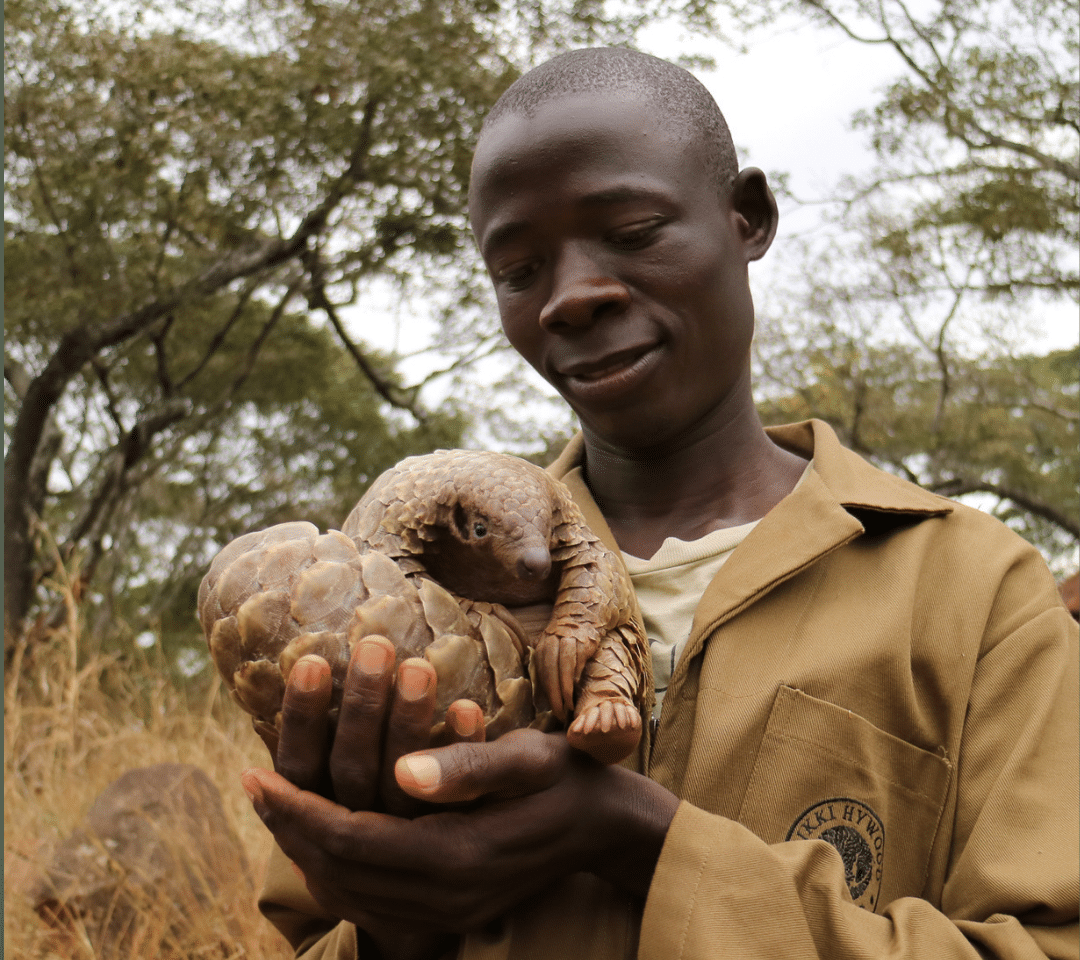
Mesmerized by their overlapping scales and defensive curl, Immaculate found her calling in pangolin rehabilitation. Having cared for over 45 of these endangered mammals, Immaculate spends her days guiding pangolins on foraging expeditions in game reserves, bottle-feeding infants, and monitoring their health. What drives her most is the profound bond formed with these remarkable creatures, along with deep gratitude to the donors whose support makes this vital conservation work possible.
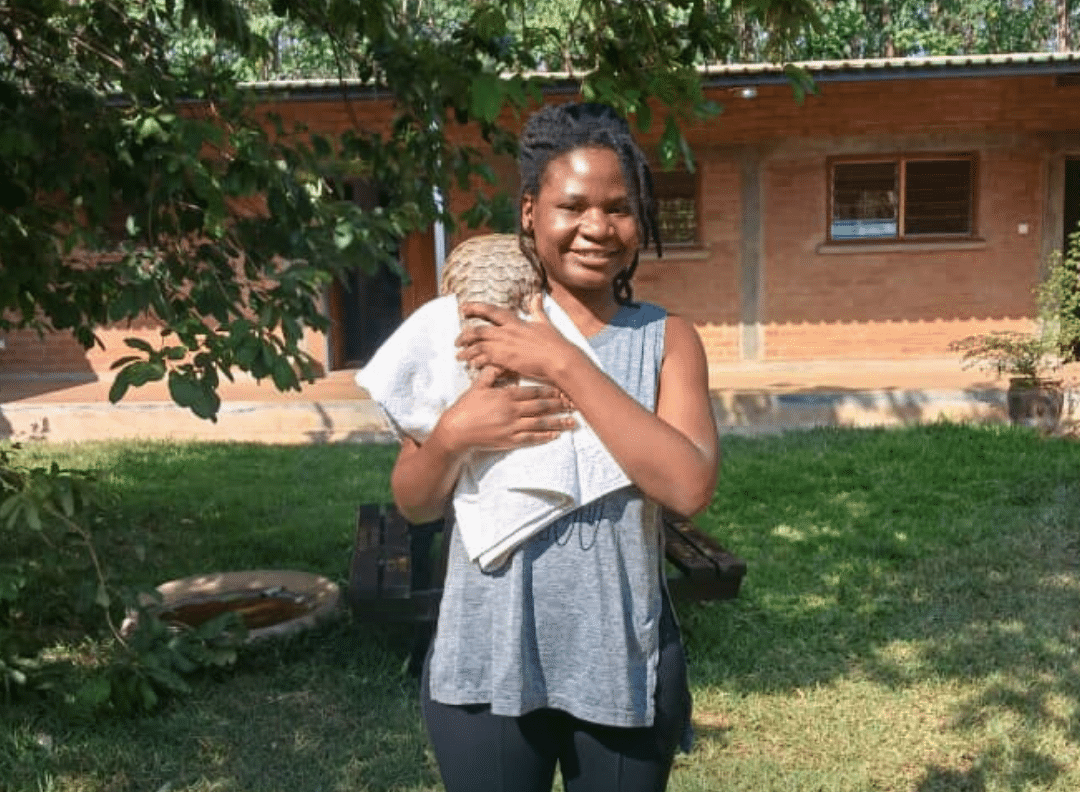
There are eight pangolin species found across Africa and Asia. Africa’s three most endangered pangolins are the giant pangolin, the largest of all pangolin species, and the black-bellied and white-bellied pangolins, the two smallest of all pangolin species.
Giant pangolins can weigh up to 70 pounds and grow nearly six feet long from nose tip to tail tip. Their massive size—roughly that of a medium-sized dog—confines them to the ground, where they dig burrows into the earth with powerful claws. Their range extends from Senegal to Uganda.
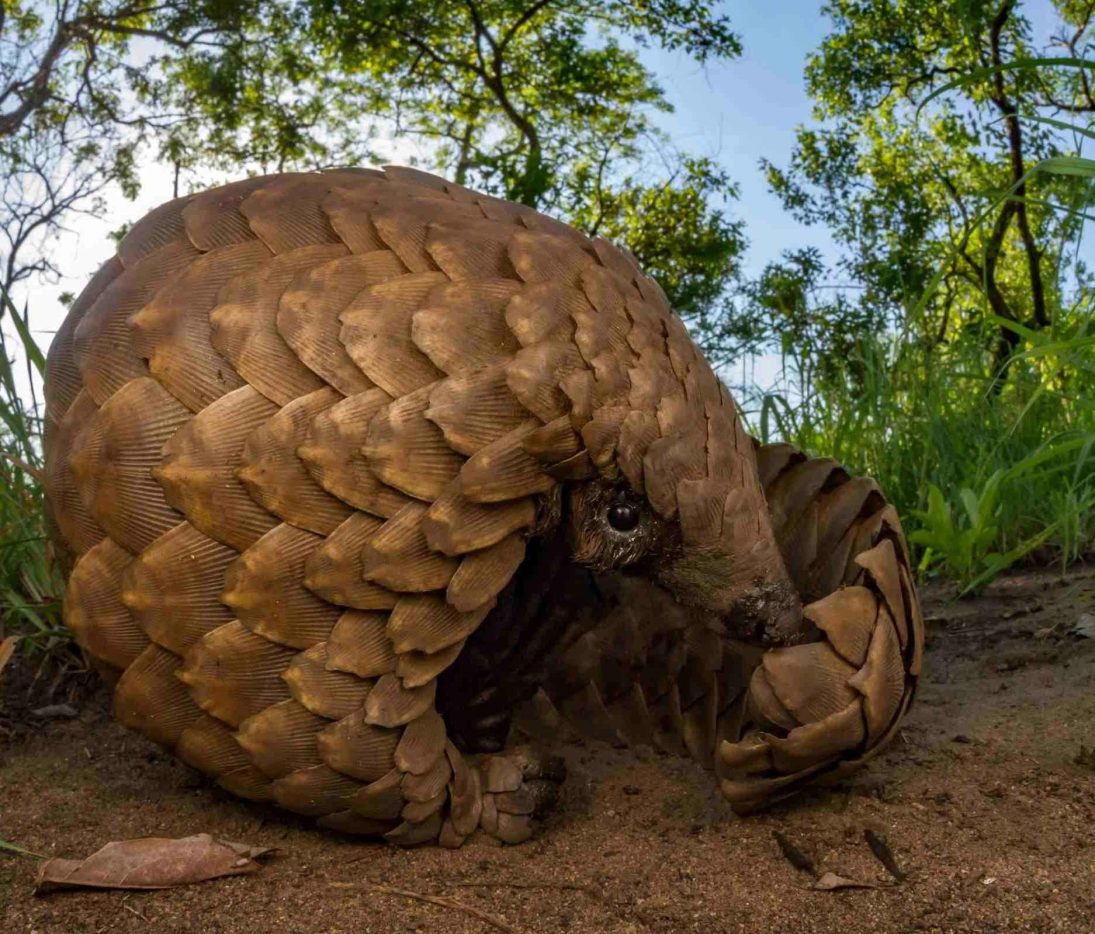
In Central and West Africa, black-bellied pangolins are usually found up in the trees. They are Africa’s only arboreal pangolin species, using their long prehensile tails to help them climb to high forest boughs. Black-bellied pangolins spend the majority of their lives in the trees and are also slightly smaller than their white-bellied cousins.
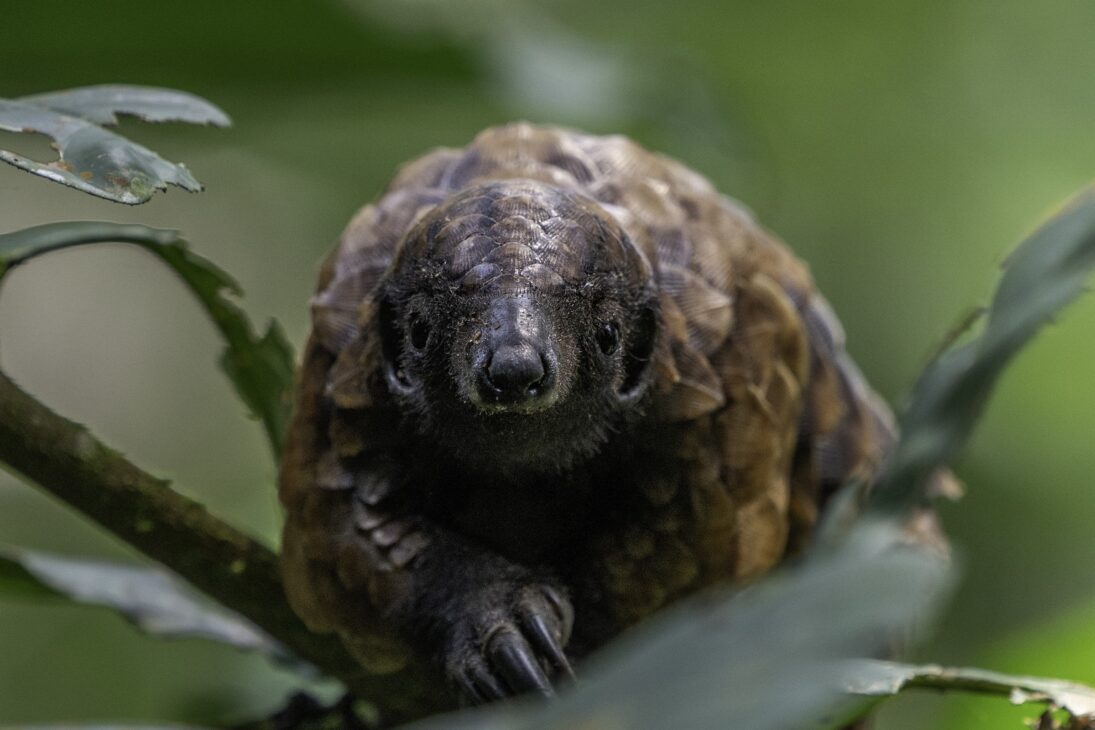
White-bellied pangolins are also found in Central and West Africa. Like black-bellied pangolins, they are an arboreal pangolin species. White-bellied pangolins split their time between the trees and the ground, while black-bellied pangolins spend the majority of their lives off the ground.
